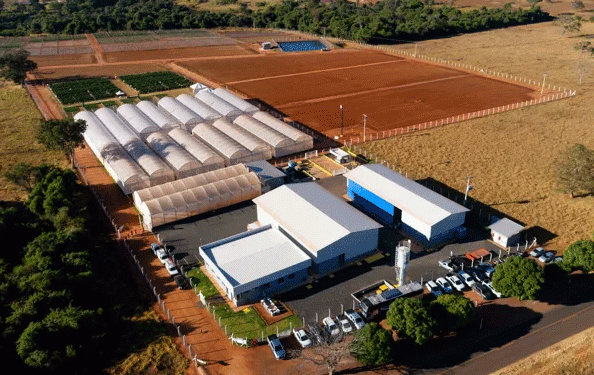KWS Unveils New Greenhouse Facility in Brazil to Enhance Tomato and Melon Breeding for Tropical Agriculture
In a strategic move to boost vegetable breeding in tropical and subtropical regions, KWS, a leading global breeding company, has recently inaugurated a new research and breeding facility in Uberlândia, Brazil. This significant investment is set to reshape the production and quality of tomatoes, melons, and watermelons in the region, addressing the growing demand for resilient and high-yield crops.
Expanding Breeding Capabilities in Brazil
Located in the western part of Minas Gerais state, the Uberlândia facility spans 13 hectares and is equipped with state-of-the-art resources including 3,800 square meters of greenhouses and seven hectares of open field trials. The facility is supported by a dedicated team of approximately 60 experts, including breeders, researchers, and cultivation staff. The new site is poised to play a crucial role in developing new vegetable varieties that are well-adapted to the challenging climatic conditions of tropical and subtropical regions.
Ailton Ribeiro, Head of Breeding Latin America at KWS Vegetables, emphasized the importance of this facility for the local and South American vegetable markets. “Our goal is to develop new varieties and hybrids that are tailored to the tropical and subtropical conditions, offering better quality, higher yields, and enhanced resistance to major pests and diseases,” Ribeiro stated. This focus aligns with the increasing global demand for robust vegetable varieties that can thrive in diverse environmental conditions.
Strategic Importance of Uberlândia for KWS
The Uberlândia site is part of KWS’s broader strategy to reinforce its presence in Brazil and across South America. Eduardo Albonico, National Sales Manager Brazil for KWS Vegetables, highlighted the significance of this investment in meeting the needs of tropical agricultural markets. “With this new facility, we aim to continue supplying high-quality seeds to this vital region, ensuring that farmers have access to the best possible products for their specific growing conditions,” Albonico explained.
In addition to Uberlândia, KWS operates a breeding station in Petrolina, in northeastern Brazil, which is a key area for melon cultivation. Petrolina’s favorable climate and soil conditions allow for year-round melon production, which caters to both the domestic market and export demands in the United States and Europe. Meanwhile, the company’s Campinas office handles financial management, sales, and supports research and development activities across Brazil, including those at the Uberlândia facility.
Meeting the Challenges of Tropical Agriculture
The establishment of this new breeding center comes at a critical time when the agricultural sector in tropical regions is facing mounting challenges due to climate change, pest pressures, and the need for sustainable farming practices. By focusing on developing varieties that are specifically adapted to these environments, KWS is positioning itself as a leader in the global effort to secure food production in some of the world’s most challenging climates.
Moreover, the inclusion of fytopathological activities in the future expansion of the Uberlândia facility underscores KWS’s commitment to addressing plant health and disease resistance—key factors in achieving sustainable crop yields in tropical regions.
KWS’s investment in the Uberlândia breeding facility marks a significant step forward in the development of vegetable varieties tailored to tropical and subtropical regions. As global demand for high-quality, resilient crops continues to grow, facilities like Uberlândia will be at the forefront of agricultural innovation, ensuring that farmers have access to the best possible tools to succeed in an increasingly complex agricultural landscape.











